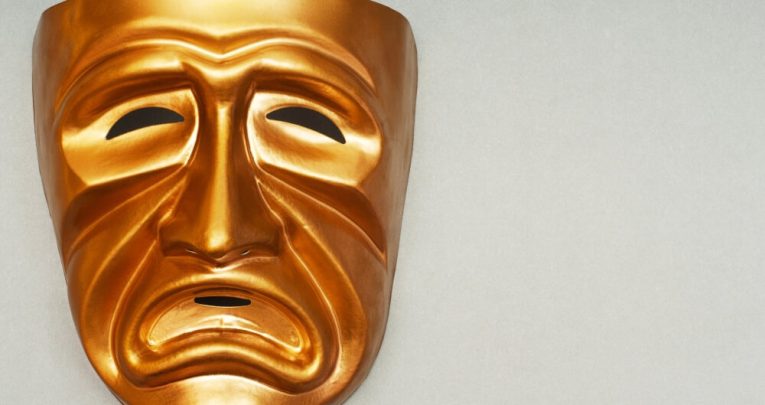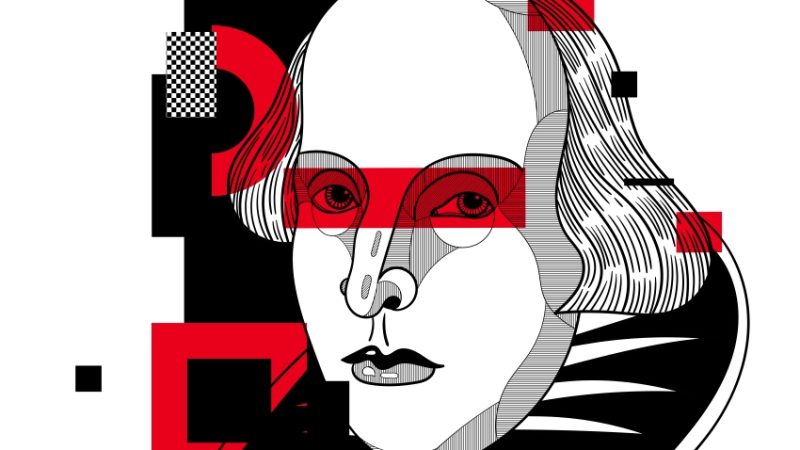Productions in the pandemic – Will the show go on?

Alex Weller reveals the valuable lessons she’s learnt from putting on school shows during the COVID-19 era

- by Alex Weller
- Head of drama at Plume Academy, Maldon

We’ve all heard the clichés of ‘It’ll be alright on the night’ and ‘The show must go on.’
After the endless disruptions of these past two years rocked by COVID, and with the Omicron variant emerging as I write these words, I’ve found myself asking – in the middle of rehearsals for three different plays for three different year groups – ‘Will it?’ and even, ‘Must it?’
School shows are part and parcel of being a drama teacher, but opting to stage three plays for three different year groups to be performed in the same month may have been a somewhat questionable decision…
The process, not the product
As one of the largest schools in our county, we entered this academic year cautiously, still wearing masks in corridors and maintaining year group ‘bubbles’, which meant no mixed year group shows.
My current Y10s and Y12s have missed multiple opportunities to perform in front of a live audience, so I wanted them to experience this early on in their GCSE and A Level courses. I was also keen to promote my subject to KS3 drama students, and prove to a cohort of Y9s (who haven’t seen a full academic year since Y6!) that drama is a fantastic option to choose at GCSE.
After two years of not always being able to teach in a studio, deliver practical drama or organise theatre trips, I was desperate to put on a school show. This term, however, I’ve had to adjust my expectations in order to do so.
Pre-COVID, my expectations for the school show were always incredibly high. All students had to be off-script, as I wouldn’t allow a prompt. All tickets had to have been sold, and students were required to attend weekly rehearsals.
Fast forward to now, and I’m looking at reduced ticket availability, a very socially distanced audience and students who have had to miss a significant number of rehearsals, resulting in under-rehearsed pieces and leaving me feeling like these performances were a mistake.
Then I walk down the corridor, hearing different cohorts of children practising, playing, directing each other and laughing whilst doing so, and it clicks for me that the outcome isn’t important. If a child forgets their line, or if the lights change on the wrong cue – does it really matter? And who will really care?
Trending
Even in a normal year, students would have spent one night performing this show, preceded by countless hours spent rehearsing with peers, learning lines at home and being part of the process. And that’s what they’re going to remember.
Just one night
As news reports of the Omicron variant continue to unfold, I’m once again plagued with the overarching fear that something will prevent these shows from going ahead, but even if they do, I’m going to practice what I preach; remembering that drama is about more than acting, and that school shows are about more than just that one night on stage.
Drama develops invaluable, transferable life skills. Even if our students don’t get to experience the buzz of standing backstage before the lights go up, they’ll still have beheld the buzz of rehearsals.
They might not realise it yet, but their involvement in the production will have helped build their confidence and ability to communicate with others after so long apart. It will also have been an opportunity to experience something sorely missing from their past two years at school – the chance to be part of something fun with their peers.
If any fellow drama teachers reading this can relate to having been in mid-rehearsal for a show that may well have ‘gone wrong’, just remember that it doesn’t matter if it does.
We’re not here to put on professional quality shows; we’re here to provide a space for children to be a part of something bigger than academic learning, express themselves and have fun.
Alex Weller is head of drama at Plume Academy in Maldon, Essex, and tweets as @ITeachDrama2










